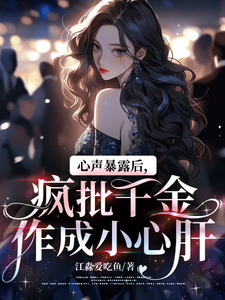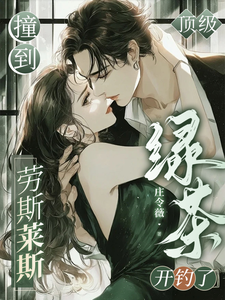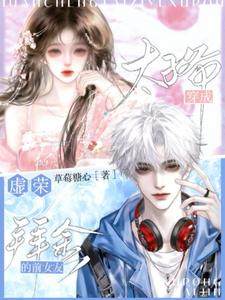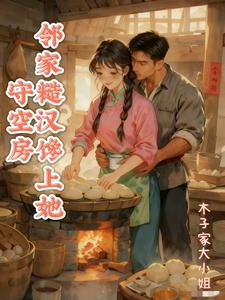Jin Niang was once again awakened by the shrill shouting of Granny Hao next door. She covered her ears, barely managing to drift back to sleep, assuming Granny Hao would finally quiet down. But just as she lowered her hands, she was met with muffled sobs—soft yet piercing in the dead silence of the night.
She recognized it as the crying of Granny Hao’s daughter-in-law.
Though "new" was hardly the right word anymore—the woman had been married for nearly three years. When Jin Niang’s family first moved here, Granny Hao had even come by to deliver wedding sweets.
But why had the relationship between mother-in-law and daughter-in-law soured to this extent? Jin Niang knew the reasons well. First, the bride’s dowry had been meager. Second, she had only given birth to a daughter.
In modern times, dissatisfaction from the in-laws might have been limited to a few muttered complaints, and even then, few would dare to be so blatant—no one wanted to be labeled as favoring sons over daughters. But in this wretched ancient era, Granny Hao might even be praised for her restraint. Why? Because, unlike some families, she hadn’t secretly drowned the baby girl.
Ironic. So bitterly ironic.
And just like that, the faint weeping seemed to dissolve into the air, replaced by the rhythmic pounding of rice after the third crow of the rooster.
Jin Niang turned over, closing her eyes again, but sleep eluded her. Resigned, she sat up. Her hand instinctively reached for the light switch before she caught herself and scoffed—there was no electricity here. She lay back down.
Candles in this Northern Song Dynasty didn’t come cheap—two hundred copper coins for a single one. She couldn’t bring herself to light one, not when her family was scraping by on the barest of means.
When she had first transmigrated here—barely half a year or a year old—the Wei family hadn’t been so poor. Her father, Wei Xiong, was the second son in the family. He lacked his elder brother’s sharp wit or his younger brother’s charm, but he was broad-shouldered and strong, so he enlisted in the Hanyang Army as a garrison soldier.
Later, he was even selected for the Imperial Guard, where the pay was generous enough to bring his family along. Jin Niang had even managed to attend school for three years, a luxury her parents had been happy to indulge at the time.
But when she was nine, the officer her father served under died, and the Imperial Guard underwent downsizing. The family of three returned to their hometown in Anlu Prefecture.
Back then, the Wei family was still comfortably well-off. With no other skills, Wei Xiong bought a mule cart to ferry passengers or goods for a fee. But as the saying goes, maintaining wealth is harder than earning it. Wei Xiong was an open book—incapable of keeping his finances private, he blabbed about every coin he had to anyone who’d listen.
Soon enough, relatives came borrowing money, neighbors dragged him into gambling, and passengers skipped out on paying. Their savings dwindled like water through a sieve.
Seeing the situation worsen—especially after her father was framed in a roadside scam while escorting a relative home—Jin Niang insisted they move to Jiangling Prefecture to buy property.
Jiangling Prefecture was the capital of Jinghu North Circuit. Though it couldn’t compare to the grandeur of Hangzhou Prefecture or Pingjiang Prefecture in the Liangzhe Circuit, it was still a bustling hub, famously described as "a city of a hundred thousand households, where tiled roofs gleam like mandarin ducks and carriages clatter through the night."
Moreover, it was a vital crossroads—ships from north and south all passed through, especially in the southern riverside district where they lived, known as the "confluence of boats and carts."
Wei Xiong, ever fearful of city folk looking down on him, had wanted to buy property on the outskirts. But Jin Niang pushed for a house in the heart of Jiangling. They couldn’t afford a high- or even mid-tier home, settling instead for a cramped lower-class dwelling—two rooms, a tiny hall, and a narrow kitchen.
Even that cost them a hundred and eighty strings of cash. Wei Xiong had only saved two hundred strings over the years, and with the remaining ten, her parents splurged—three strings went toward furnishing Jin Niang’s room: a bed, a narrow chest of drawers (now peeling and barely closing), and a small table (with one corner broken off).
She hadn’t forced her father to spend out of cruelty—it was just that he couldn’t hold onto money. Relatives and grandparents would have bled them dry otherwise. Buying property at least secured them some assets.
Three years after settling in Rooster’s Crow Alley, Luo Yu'e gave birth to Jin Niang’s younger brother, now just three years old. The family of four now worked three jobs: her father drove his cart for a monthly wage of one string of cash (about three to five hundred coins), her mother worked in the kitchen of a roadside inn with her brother in tow, and Jin Niang herself apprenticed at an embroidery workshop.
Apprentices didn’t earn wages for the first three years—just a new set of clothes each year. Jin Niang had been lucky. When she joined, the other apprentices had already been training for a year. But because she could read, write, and draw, the workshop’s owner counted her apprenticeship as only two years before she could start earning.
Finally, last year, she began receiving wages, and the family’s finances eased slightly—until Grandfather Old Man Wei passed away. With her eldest uncle bedridden, the funeral arrangements fell entirely on her father.
By the time the mourning rites were over, the Wei family’s hard-earned savings were nearly gone—even Jin Niang’s private stash had taken a hit.
Lost in these thoughts, she didn’t realize she’d dozed off until a knock startled her awake. Jin Niang shuffled to the door in her slippers to find her mother standing there.
Luo Yu'e wore an autumn-green linen bodice and matching trousers, tied with an elegant indigo apron, all covered by a printed cotton robe. A sandalwood-colored ramie scarf wrapped around her head.
"Mother," Jin Niang called quickly.
Her mother, Luo Yu'e, came from a poor family in Anlu Prefecture but was strikingly beautiful—fair-skinned, slender, with delicate hands. Outwardly, she looked like a fragile blossom, but her temper was explosive. Nicknamed "Jade-Faced Rakshasa," she was infamous for her sharp tongue and sharper nails, which she kept long for scratching anyone who crossed her. Just days ago, she’d nearly chased off a meddling relative with a kitchen knife.
A stark contrast to her husband, Wei Xiong—a burly, imposing man who’d served in the military for years but was soft-hearted and gullible, believing every word outsiders fed him.
Luo Yu'e clashed with relatives constantly, quick to flare up and threaten violence. Yet for all her fierceness, she doted on her family. Even now, at twelve years old, Jin Niang often had breakfast brought to her bedside when her mother was home.
Seeing her daughter yawn, Luo Yu'e chided, "Eat quickly and get to work. You’ve already missed days because of the funeral."
"I know," Jin Niang replied, accepting the breakfast—a boiled egg and an oil cake. The vendor at the alley’s entrance sold these crispy, golden cakes for one coin each. Normally, breakfast was just rice porridge and pickles, but after seven days of mourning and little rest, they were all in need of a treat.
Luo Yu'e gazed at her daughter, watching her eat with such delight, and couldn't help but sigh inwardly. The girl’s looks and figure bore little resemblance to her own. If only she ate a bit less and grew slimmer—she was already twelve, and next year at thirteen, she’d be of marriageable age. Yet here she was, plump and round like a glutinous rice dumpling.
Indeed, Jin Niang was of average height, with a full, soft figure. Her face was short and round, framed by delicate arched brows and thin lips. Her arms were plump like lotus roots, and she even had a pair of prominent ears. Only her almond-shaped eyes were truly striking, complemented by a pair of dimples that added a touch of charming innocence.
In the Tang Dynasty, such a figure might have been passable, but in the Song Dynasty, where frail and slender beauty reigned supreme, she was far from the ideal.
Yet Jin Niang paid no mind to such things. For a girl from a poor family, excessive beauty was hardly a blessing.
After finishing breakfast, she retrieved two strings of coins from beneath her pillow. Handing one to Luo Yu'e, she said, "Mother, since you’ve already quarreled with the owner of that roadside inn, it’s best not to go back. Here’s a string of cash—take it for household expenses."
Luo Yu'e quickly refused. "Child, I still have money. I don’t need yours. You’ve already given us so much this past year. Take it back, take it back!"
"Mother," Jin Niang insisted, tucking the coins into her sleeve. "Just keep it. You handle all our daily meals, and autumn is coming. Little Brother still doesn’t have a proper winter coat or trousers. Two taels of cotton cost seventy-six coppers, and lining a coat takes four to five hundred coppers. By the time the garment’s made, it’ll be five hundred coppers."
Clothing in the Northern Song wasn’t cheap. Cotton hadn’t yet been widely cultivated, so the poor often wore robes stuffed with hemp fibers. Jin Niang herself had once worn layered hemp garments until, two years prior, the embroidery workshop issued her a padded coat made of low-grade cotton.
But her little brother still lacked a decent winter coat—the one he wore now, handed down from Third Aunt, had cotton so old it had turned black.
Luo Yu'e accepted the coins, shamefaced. "This is truly our failing as parents."
Jin Niang hesitated, then seemed to steel herself. She pulled her mother down to sit beside her. "Mother, I’ve decided to go to Bianliang with Madam Chen."
"Bianliang?" Luo Yu'e immediately rejected the idea. "What’s a young girl like you doing going so far away?"
Jin Niang explained, "Last year, Madam Chen from our Shu Embroidery Workshop made a wedding gown for the daughter of a local official. That girl married into a family in the capital, and when the relatives there saw the gown, they praised it highly. Now, the official’s wife’s younger sister has several daughters nearing marriageable age and wants Madam Chen to go and work as their seamstress. Madam Chen is selecting four of us to accompany her to the capital. She chose me, and though I’d rather not leave you and Father, if I don’t go, I’ll never earn more than a pittance, even if I sew my eyes blind."
Embroidery was a trade that valued experience and reputation. Having worked for a high-ranking family would allow her to command better wages in the future.
But Luo Yu'e remained uneasy. "Those wealthy households aren’t easy places to work. You’ll be of marriageable age in another year. Going so far away will only delay your prospects. At least now you’re free—if you become someone’s servant, subject to beatings and scoldings, how could I bear it?"
Jin Niang knew she had to convince her mother first. "Mother, the government has banned the sale of indentured servants. We’re not selling ourselves—it’s just a three-year contract. Once the term ends, I’ll be free. They wouldn’t dare mistreat hired workers too harshly."
In the Northern Song, indentured servants and hired laborers coexisted, but most were hired under contract. The Song Dynasty had abolished the "lowly" caste, forbidding terms like "base people"—they were now called "maidservants." Indentured servants had no legal status, but hired workers were free citizens, registered with the state.
Seeing her mother still wavering, Jin Niang pressed on. "Besides, even the sons of officials these days choose brides based on dowries, not family status. I’m no great beauty, and without a dowry, I’d struggle to marry even if I stayed home. If I did find a husband, I’d end up like Granny Hao’s daughter-in-law next door—despised and mistreated. At least Madam Chen promised me this: the official’s wife agreed to pay each of us four embroiderers a monthly wage of one string of cash. But because I can also draw designs, they’re offering me an extra tael of silver. This isn’t just any wealthy family—they’re high-ranking officials. The rewards will surely be better than the seven hundred coppers I earn now at Shu Embroidery Workshop."
At the workshop, she was merely a seamstress, dependent on the orders the workshop received. Private commissions were rare, so her earnings were meager. One string of cash equaled a thousand coppers, and one tael of silver was worth twelve hundred and fifty.
Luo Yu'e thought of her late husband, who had earned thirty strings a year as a garrison soldier and fifty as an imperial guard. If he were still alive, their daughter wouldn’t need to work as a maidservant.
She clasped Jin Niang’s hand, still reluctant. "It’s still not much. How do we know Madam Chen isn’t tricking you, planning to sell you off?"
Her mother’s worry brought tears to Jin Niang’s eyes, but she held firm. "There’s another reason I want to go to Bianliang—though it may be a long shot. The Imperial Embroidery Academy occasionally recruits skilled embroiderers from the common folk. If I’m fortunate enough to join, I’d earn two strings a month, and the prestige alone would be invaluable. Imagine—I might even make clothes for the Emperor and Empress! Look at Madam Chen. She studied under a master from the Academy, and now she earns ten strings a month—ten times what we make, maybe even more."
"And look at our home—just two rooms. Little Brother is still small enough to sleep with you, but he can’t do that forever."
If you don’t plan for the future, trouble will find you soon enough.
In the Northern Song, a middle-class household was defined by assets of a thousand strings. In modern terms, Jin Niang’s family would be considered lower-middle class. She didn’t seek great wealth—just a modest, comfortable life. Staying together as a family was wonderful, but without money, they’d all suffer.
Finally, her mother nodded, though she added, "A young girl like you can be easily fooled by sweet words. I’ll go with you to meet Madam Chen and the workshop manager first."
Jin Niang exhaled in relief. She had long regarded her parents as her own, and she refused to let them live in hardship forever.
For their sake, she would strive with all her might.







